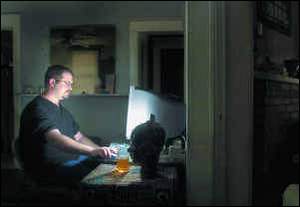PBS - Two opposing views
I love PBS. I grew up without cable and PBS instilled in me an intense love for documentary films and do-it-yourself shows. I created countless science fair projects based on NOVA programs, and even today I fix up my hundred year old house using inspiration gleaned from a lifetime of watching This Old House.
My only problem with PBS is that it takes tax payer money and preaches liberal dogma at me. A liberal world view is fine for individual Americans, it is a free country after all, but I bristle at being forced to fund it.
A good friend sent me a moveon.org dispatch pleading for the rescue of Big Bird from the talons of the Republicans:
My knee-jerk reaction is to advocate for the withdrawl of federal funding. Let it stand on it's own in the free market. Even though liberal, PBS is still a quality product so let it be vindicated with commercial success, I say.
Peggy Noonan, writing for the Wall Street Journal, argues effectively against that reaction:
My only problem with PBS is that it takes tax payer money and preaches liberal dogma at me. A liberal world view is fine for individual Americans, it is a free country after all, but I bristle at being forced to fund it.
A good friend sent me a moveon.org dispatch pleading for the rescue of Big Bird from the talons of the Republicans:
A House panel has voted to eliminate all public funding for NPR and PBS, starting with "Sesame Street," "Reading Rainbow," and other commercial-free children's shows. If approved, this would be the most severe cut in the history of public broadcasting, threatening to pull the plug on Big Bird, Cookie Monster, and Oscar the Grouch.I'm on record as one who doesn't respond well to "For the Children" arguments.
The cuts would slash 25% of the federal funding this year--$100 million--and end funding altogether within two years. The loss could kill beloved children's shows like "Clifford the Big Red Dog," "Arthur," and "Postcards from Buster." Rural stations and those serving low-income communities might not survive. Other stations would have to increase corporate sponsorships.I'm also not one to be moved by invoking the holy demographics ("Rural" and "low-income" communities.)
My knee-jerk reaction is to advocate for the withdrawl of federal funding. Let it stand on it's own in the free market. Even though liberal, PBS is still a quality product so let it be vindicated with commercial success, I say.
Peggy Noonan, writing for the Wall Street Journal, argues effectively against that reaction:
Conservatives argue that in a 500-channel universe the programming of PBS could easily be duplicated or find a home at a free commercial network. The power of the marketplace will ensure that PBS's better offerings find a place to continue and flourish.Read it all, for it is good. A reasonable agument in favor of continued federal funding. But it's all predicated on the assumption that PBS will willingly drop all political content and the cynic in me just doesn't see that happening. PBS as it stands today is a public institution. As such it enjoys a protected status much like Social Security and dozens of other programs I'd like to see reformed. I'm afraid that Noonan's desire (which I share) for an apolitical PBS is just wishful thinking without a funding cut. Perhaps the motivation for reform will start in PBS's pocketbook.
This I doubt. Actually I'm fairly certain it is not true.
[...]
At its best, at its most thoughtful and intellectually honest and curious, PBS does the kind of work that no other network in America does or will do...Such programming would be expensive, demanding, and a ratings disaster...But some great work came from PBS's detachment from marketplace realities. And it has even been work--such as "The Civil War"--that helped our country by teaching our children the things they must know to go on to become adults who love their country. This, in the world we live in, is no small thing. It's huge.
[...]
Art and science and history. That's where PBS's programming should be. And Americans would not resent funding it.

